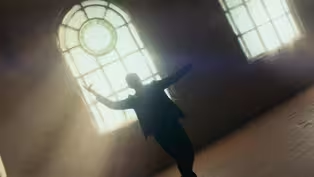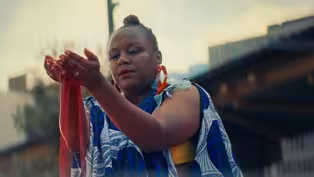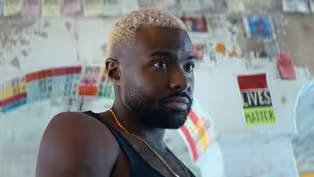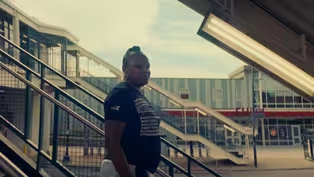
Dulé Meets Refugee Children at the Syrian Community Network
Clip: Episode 4 | 3m 57sVideo has Closed Captions
Dulé Hill meets refugee children with Bassel Almadani at the Syrian Community Network.
Dulé Hill and Bassel Almadani, a first-generation Syrian-American and frontman of the band Bassel & The Supernaturals, visit the Syrian Community Network to meet young children who came to Chicago as refugees.
Problems playing video? | Closed Captioning Feedback
Problems playing video? | Closed Captioning Feedback
This program was made possible by a grant from Anne Ray Foundation.

Dulé Meets Refugee Children at the Syrian Community Network
Clip: Episode 4 | 3m 57sVideo has Closed Captions
Dulé Hill and Bassel Almadani, a first-generation Syrian-American and frontman of the band Bassel & The Supernaturals, visit the Syrian Community Network to meet young children who came to Chicago as refugees.
Problems playing video? | Closed Captioning Feedback
How to Watch The Express Way with Dulé Hill
The Express Way with Dulé Hill is available to stream on pbs.org and the free PBS App, available on iPhone, Apple TV, Android TV, Android smartphones, Amazon Fire TV, Amazon Fire Tablet, Roku, Samsung Smart TV, and Vizio.
Buy Now
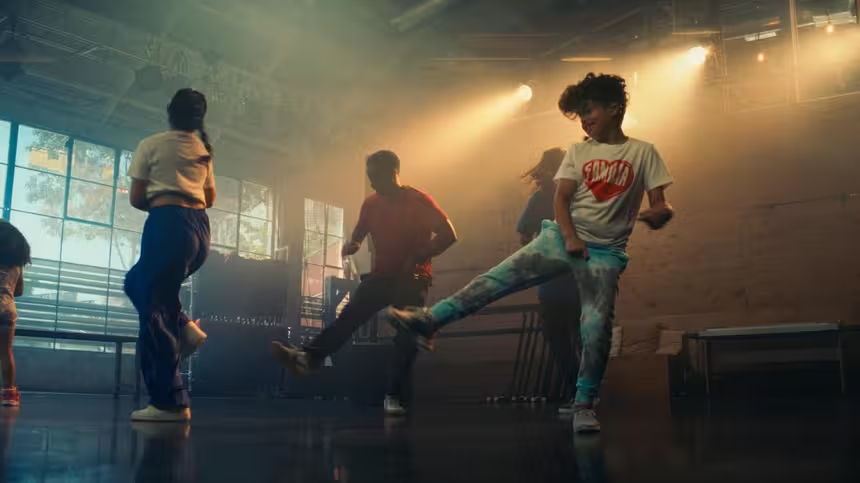
5 Artists Showcasing the Power of Art
From colorful cabarets and moving movies to artistic techniques that transcend the senses, here are five inspiring artists highlighted in The Express Way with Dulé Hill.Providing Support for PBS.org
Learn Moreabout PBS online sponsorshipAlmadani: ♪ If there's one thing I know ♪ ♪ It's how to make you feel right at home ♪ ♪ Well, just take the bed and eat up... ♪ Almadani: All right.
You guys ready to learn some music?
Child: Yes.
So go ahead and play, like, a little bit of the bassline of "Aleppo."
Yeah.
♪ Yeah.
You can play with him, too.
Later in the song, there's a chorus that happens in Arabic.
We put the letters in English just so they're a little easier to read for now, but the idea-- "Albi breedik ya Halab"-- does anybody know what that means?
"My heart yearns for Halab."
That's Aleppo in Arabic.
It's where my family is from, but if you have a different city you want to put in there, "Albi breedik ya Sham" or "Hama" or "ya Homs," whatever it might be.
Feel free.
♪ Albi breedik ya Halab... ♪ Almadani: There's always this, like, sense of nerves when you meet children who are refugees... ♪ Halab ♪ ♪ Yeah, you ♪ Almadani: ...but once you give kids an instrument, once you give kids a drum or a shaker or a tambourine, you see their character just shine.
♪ I just wanted to expose them to art as a form of healing, as a vehicle, as a mechanism to process that trauma.
♪ Almadani: All right.
Guys, great job.
[Applause] Hey, what's up, man?
How you doing, man?
Hey, what's up, man?
How you doing?
Yeah.
You're my friend now.
Oh, yeah.
What's up, man?
You're my friend.
Are you my friend?
I am your friend.
Yes, I am.
Almadani: Dulé is here to learn about the Syrian Community Network and the amazing work that's happening right here in Chicago to help empower the future of not just Syrians, but of our entire region and beyond.
Woman: We are a nonprofit based here in Chicago, and our role is to help Arabic-speaking immigrants and refugees transition to life here in the United States.
So we work with kids all the way through adults, seniors, and these are some kids who learned different Arabic words, so they all speak and understand Arabic, but they're learning to read and write because they moved here when they were so young that they didn't get formal Arabic schooling.
Hill: What are some of the Arabic words that they've learned?
West: Perfect.
What's this one?
Boy: Uh, it's a bee.
Nahli.
Nahla.
Almadani: Ah!
Where?
[Laughter] Almadani: A lot of people have no idea what refugees actually experience when they first come to the country and how little resources they're actually being provided.
So we really work with families for the long term, helping them establish themselves here, so I think every single one of our students could tell you that they have family abroad still, but we really wanted to celebrate the culture that they're from.
Just because they're here, they don't need to lose out on their identity, so they actually prepared a special song for you two today-- they've been working on it all summer--in Arabic.
Hill: Wow.
I'm very excited, very excited.
Thank you so much for this.
Almadani: Such a beautiful thing how art can bring the youth to life, and seeing that in real time with these kids, it's such a beautiful experience.
Hill: Hey, hey, hey!
Ha ha ha!
[Applause] That was magnificent.
Yeah, wonderful.
I want you all to know that you all are magnificent angels, and I loved hearing your beautiful voices sing.
No matter where you go in the world, your home always goes with you.
As long as your heart is thinking about home, home is where you are.
Keep on singing your song and keep making this world a better place because you all are the ones that are going to let the light shine in this world.
[Indistinct conversation]
Bassel & The Supernaturals Perform “Black Water”
Video has Closed Captions
Clip: Ep4 | 2m 38s | Bassel Almadani and his band, Bassel & The Supernaturals, perform the song “Black Water.” (2m 38s)
Video has Closed Captions
Preview: Ep4 | 30s | In Chicago, Dulé Hill explores why art and activism are synonymous. (30s)
Dulé Reads for the Andre Theatre Collective Casting Session
Video has Closed Captions
Clip: Ep4 | 8m 14s | Dulé Hill joins the Andre Theatre Collective for their first casting session. (8m 14s)
Vershawn Sanders Ward Teaches Afro-Contemporary Dance
Video has Closed Captions
Clip: Ep4 | 2m 24s | Dulé Hill learns Afro-Contemporary dance with Vershawn Sanders Ward. (2m 24s)
Providing Support for PBS.org
Learn Moreabout PBS online sponsorshipSupport for PBS provided by:
This program was made possible by a grant from Anne Ray Foundation.
